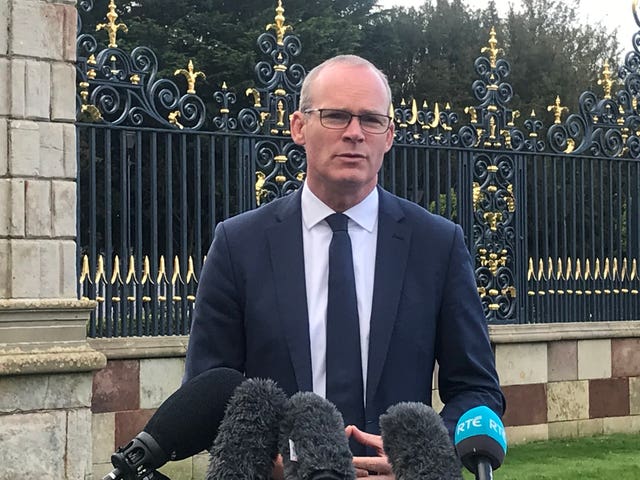Brexit deal ‘still possible’ this week, says EU chief negotiator Michel Barnier
Boris Johnson is in a race against the clock to secure a fresh agreement.

A Brexit deal could be clinched within days, according to the European Union’s chief negotiator Michel Barnier, who said reaching an agreement this week is “still possible”.
The glimmer of hope comes as the Government rejected claims that a deal cannot be negotiated in time for a crucial EU summit after the Finnish prime minister said “more time” is needed.
But Mr Barnier warned he needs good intentions to turn into a legal document as Boris Johnson races against the clock to secure a fresh agreement for the meeting of European leaders starting in Brussels on Thursday.
The negotiator struck a positive note after meeting Brexit Secretary Stephen Barclay at the General Affairs Council on Tuesday morning.
He debriefed EU27 ministers in Luxembourg before tweeting: “Talks are difficult but I believe an agreement is still possible.”
Earlier in the morning Mr Barnier said work to secure a deal has been “intense”, after talks which are understood to have gone on until 11pm on Monday.
“Because even if an agreement will be difficult, more and more difficult to be frank, it is still possible this week,” he added.
“Let me add also that it is high time to turn good intentions into a legal text.”
Arriving at the council, Mr Barclay said a deal was still “very possible”.
He said: “The talks are ongoing.
“We need to give them space to proceed.
“But detailed conversations are under way and a deal is still very possible.”
The optimism coincided with Irish broadcaster RTE reporting that two sources confirmed that British negotiators will bring forward an updated plan on Tuesday to deal with the issue of customs and the Irish border.
Meanwhile, after meeting the European Council’s president-elect Charles Michel, Finland’s Antti Rinne said there was “no time” for the UK Prime Minister to achieve an agreement.
Housing Secretary Robert Jenrick rejected the remarks, stressing a “great deal” of progress had been made and negotiators are working “very intensively”.
He told BBC’s Newsnight: “The EU is capable of moving extremely quickly if they wish to. Like any negotiation with the EU, and in fact with any major negotiation in life, everything happens at the last minute.
“This was always going to be both complicated and come down to the final hours and days, so this doesn’t surprise me. We are going to work round the clock to try to secure it.”
Environment minister Zac Goldsmith was asked on BBC Radio 4’s Today programme if he would be prepared to accept a short technical extension to seal a Brexit deal.
“I don’t think an extension is necessary. If both sides wish to secure a deal, a deal can be secured.
“It’s a matter of political will. Where there’s a will there is a way, and that has never been more true than in the case of Brexit,” he said.
The latest comments comments came as negotiators stepped up efforts to work out a way to break the deadlock over the Irish backstop, the contingency measure to prevent a hard border on the island.
A Cabinet briefing on Brexit has been postponed by Mr Johnson as negotiators continue talks to hammer out a new deal ahead of the October 31 deadline.
Tuesday’s planned update to senior ministers was said to have been delayed until Wednesday so he can give more detailed information on efforts to strike a new agreement.
The PM has been under increasing pressure to concede greater ground to Brussels, with reports suggesting the UK has dropped a demand that a deal should include a veto for the Stormont Assembly on customs arrangements.

Irish deputy premier Simon Coveney raised some hopes by saying “a deal is possible”, maybe even this week, but stressed “we’re not there yet”.
In similar comments, Mr Johnson told senior ministers there was “still a significant amount of work to get there” but a “pathway” to a deal was still visible.
The two-day EU summit is crucial because the PM must get a new deal approved by MPs by Saturday if he is to avoid a clash over asking for a Brexit delay.
The Benn Act passed by MPs opposed to a no deal, including Tory rebels, says he must ask for an extension to Article 50 if MPs do not back a deal by then.
There are fears that a loophole could be used to avoid this, with the PM repeatedly ruling out making the extension request under his “do or die” pledge to get Brexit done by the Halloween deadline.
Leader of the Commons Jacob Rees-Mogg has suggested the Government could use European law to achieve no deal.
“Theresa May got an extension not through UK law but through EU law and, until the 1972 European Communities Act is repealed, EU law is superior law in the UK,” he said on BBC Radio 4’s Westminster Hour.
Labour has threatened court action to force the PM to obey the legislation.
Regardless of the outcome in Brussels, a showdown is anticipated in an emergency sitting of Parliament on Saturday – the first in 37 years – if MPs approve the unusual move.
They will be able to back or reject any deal presented to them, or there will be discussions on what to do next in the Brexit saga.





